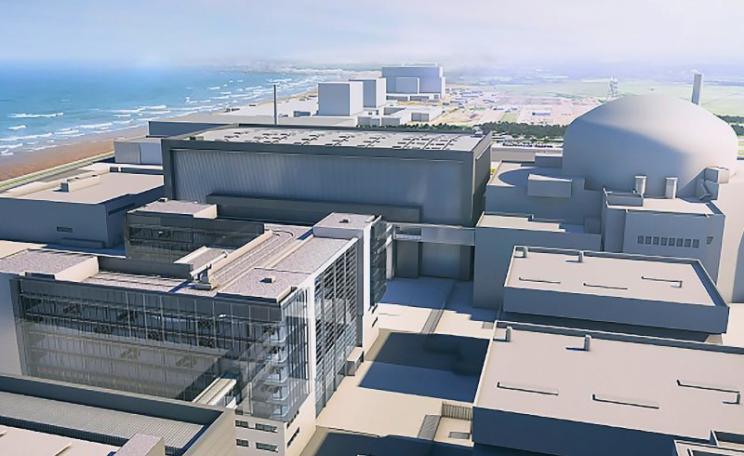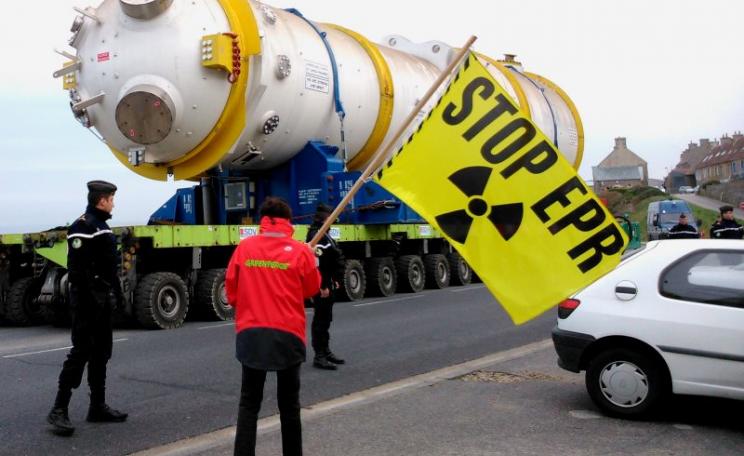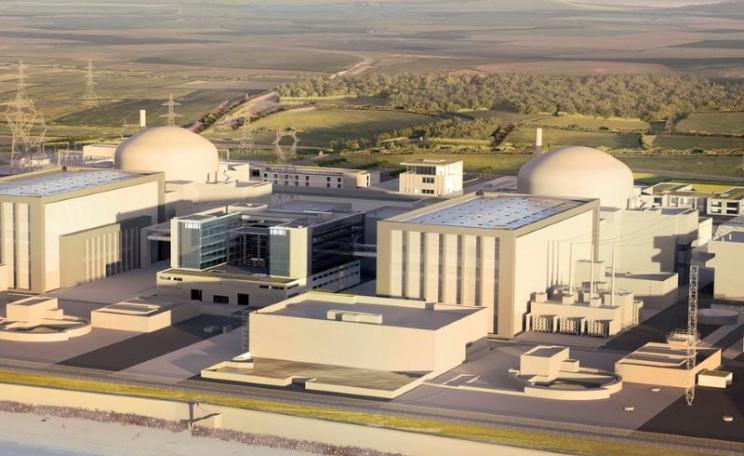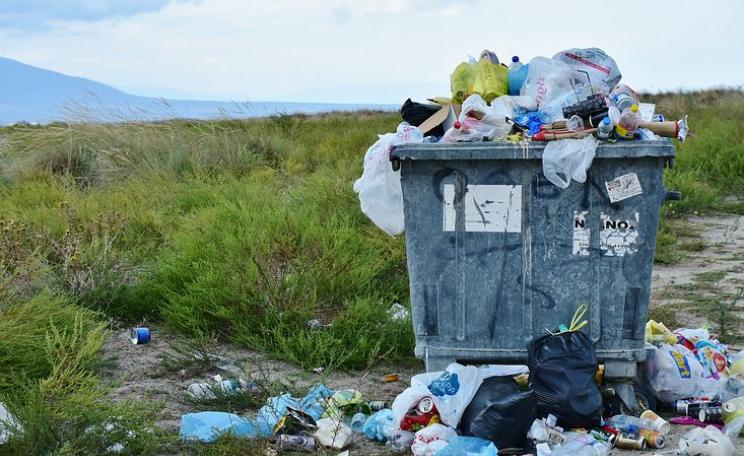By far the biggest obligation, or future burden, on consumers and households is the Hinkley Point C nuclear project. I am very pro nuclear but this must be one of the worst deals ever for British households and British industry.
The French state-owned power company EDF has revealed that its Hinkley C nuclear power plant planned for Somerset, England, will not be ready in 2023 as planned.
The company has given no completion date but promises a "revised timetable" when its gives the project its final approval - in other words it is now indefinitely postponed.
Its chief executive, Jean-Bernard Levy, insists that he has "full confidence in the success of the Hinkley Point project" however the facts suggest the opposite may be the case.
The delay will have serious effects on the UK's plans to 'keep the lights on' in 2023 and beyond, as a number of old coal power stations will be forced to close by that date under EU air quality rules.
A spokesman for the Department of Energy and Climate Change (DECC) also signalled a cautious note over the project's future: "The UK Government and EDF are continuing to work together to finalise the project. The deal must represent value for money and is subject to approval by ministers."
DECC's comment comes at time when the project is coming under growing criticism for its very high cost. It is due to receive some £95 (at current prices) per MWh generated for 35 years after it comes into operation, representing a subsidy on current wholesale power prices of about £55 per MWh.
Why does Hinkley C cost three times more than IEA nuclear cost estimates?
A new report by the International Emergy Agency projected nuclear power costs of just $50 per MWh (about £33) for projects beginning now. This gives rise to the question - why is Hinkley C costing almost three times as much?
This is the exact question that The Ecologist put to EDF's media office for Hinkley earlier today. We were promised an explanation but none has been forthcoming.
However DECC's public insistence that the project "must represent value for money" and the warning that it is "subject to approval by ministers" is surely indicative of a growing scepticism at the heart of government over the project.
An obvious driver for this cautionary tone is the Treasury, long believed to have concerns over the project's staggeringly high cost to UK energy users - independently estimated at some €105 billion (£75 billion).
In July Lord Howell, former energy minister and father in law to George Osborne, the Chancellor, made the following startling contribution to the Energy Bill in the Lords, which many observers believe to represent the Chancellor's views:
"By far the biggest obligation, or future burden, on consumers and households is the Hinkley Point C nuclear project. I am very pro nuclear and pro its low-carbon contribution but this must be one of the worst deals ever for British households and British industry.
By far the biggest obligation, or future burden, on consumers and households is the Hinkley Point C nuclear project. I am very pro nuclear but this must be one of the worst deals ever for British households and British industry.
"Furthermore, the component suppliers to EDF are in trouble, costs keep rising, no reactor of this kind has ever been completed successfully, those that are being built are years behind and workers at the site have been laid off, so personally I would shed no tears at all if the elephantine Hinkley Point C project were abandoned in favour of smaller and possibly cheaper nuclear plants a bit later on."
The Flamanville disaster rolls on
EDF's revelation on Hinkley C delays came in the course of a press conference about it's Flamanville reactor in France, which is being built to the same EPR design as Hinkley C.
The Flamanville reactor was ordered in 2006 for a price of €3.3 billion and was meant to be generating power in 2012. According to EDF, it is now scheduled for completion in the 4th quarter of 2018 - over six years late and more than three times over budget: "Following assessment of all the industrial and financial parameters, project costs have been revised to €10.5 billion."
However Jean-Bernard Lévy, EDF Chairman and Managing Director, insisted: "I have reviewed the Flamanville EPR project in detail, and I am absolutely confident that it will be a success. It is a priority for EDF and of critical importance for the French nuclear industry and its success internationally."
He added that "all of the experience gained at Flamanville will be invaluable for other EPR projects, such as Hinkley Point."
And he announced a "new roadmap" for Flamanville which "aims to optimise the management of the project" and features "three key milestones": primary circuit mechanical erection to be finalised in Q1 2016; electromechanical erection to be completed in Q1 2017; fuel loading and reactor start-up in Q4 2018.
But what about the dodgy reactor vessel?
But there was a gaping hole it the EDF statement: it made no mention at all of by far the greatest problem afflicting the Flamanville project: that the French Nuclear Safety Authority (ASN) announced last April that its reactor vessel, already installed at the heart of the power station, had metallurgical weaknesses which may render it unusable.
Forged by Areva's Creusot Forge subsidiary, tests revealed areas with high carbon concentration resulting in "lower than expected mechanical toughness values". Pierre-Franck Chevet, head of the ASN, said: "It is a serious fault, even a very serious fault, because it involves a crucial part of the nuclear reactor."
The results of further tests are expected in October 2015. If the reactor vessel does indeed need replacement, Chevet said. "either EDF abandons the project or it takes out the vessel and starts building a new one ... this would be a very heavy operation in terms of cost and delay."
The Ecologist telephoned EDF's corporate press office in Paris today asking for clarification over the new schedule for Flamanville, and whether it took into account the possible need to replace the reactor vessel. Despite following up the enquiry by email EDF has provided no response.
In the event that the reactor fails the safety tests, Areva will be liable for all the knock-on costs to EDF, which could amount to as much as €5 billion: for the cost of a new vessel, for the cost of all the work already completed that will need to be broken apart and re-built, and for the delays.
This would push Areva - already close to insolvency - into bankruptcy - and potentially leave Hinkley C with no reactor vessel. It would also leave EDF carrying most or indeed all of the cost - leaving it desperately short of working capital and unable to take on the Hinkley C project.
As such one interpretation of EDF's 'good news' announcements over Flamanville and Hinkley C is that they are, in fact, the complete opposite of what they purport to be. Hinkley C has never looked less likely to be completed.
Meanwhile the UK government has a problem. With no nuclear power station coming on stream at Hinkley C, and old coal fired and nuclear stations due to close, the obvious way to fill the gap is with renewables like solar and wind. But the entire sector has been devastated by a series of deep spending cuts.
Has Amber Rudd got a cunning plan? We can only hope so.
Oliver Tickell edits The Ecologist.







